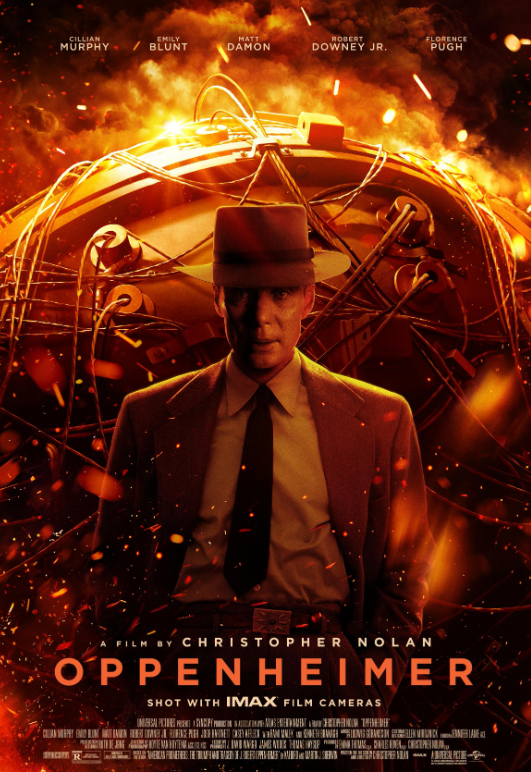“Chi-Raq” is a musical comedy-drama film, produced and directed by Spike Lee. Based on Aristophanes’ play “Lysistrata”, the film focuses on the gang violence prevalent in Chicago’s South Side neighborhoods. From rhyme schemes and plot to the names of characters themselves, “Chi-Raq” is an incredibly close adaptation of the Greek play, but ironically leaves the audience with a completely different message. The focus of “Lysistrata” is to satirize the status of women in Greek society, creating a strict male versus female dynamic that explores all the ways men have destroyed Greek society. “Chi-Raq” explores the issue of toxic masculinity in a manner that exposes the deeper trauma of Black men living in the South Side of Chicago, thereby revealing its greater objective of developing empathy and an understanding of the male characters.
In “Chi-Raq,” the war between the Spartans and the Trojans is central to understanding why Black men turn to gang violence despite immense repercussions. In the sermon given by Father Mike Corridan, played by John Cusack, he explains that economic injustices, such as racial bias within lending institutions and economic inequality have forced young, Black men to resort to gang violence in order to survive. These gangs provide them with a short-term sense of safety, security and community, but in the end, all of the gang members end up dead or severely injured. Father Corridan goes on to explain that Black people in low-income neighborhoods live in a different America altogether. This other America has a 21 percent unemployment rate, a per capita income of $12,000 and a population in which 42 percent of people live below the poverty line. To an extent, Father Corridan shows that it is not entirely the gang members’ fault for fueling this senseless war. There are political, economic and social institutions that have systematically oppressed Black people, forcing them to turn to dangerous circumstances. This framework helps drive our empathy as audience for even the most toxic male characters.
For example, Demetrius “Chi-Raq” Dupree is arguably the biggest hurdle to Lysistrata’s campaign against gun violence. As the leader of the Spartans, he is reluctant to put down his guns and negotiate peace, claiming that the issues of his community are not his fault and that he will always remain a thug. However, when his life story is revealed later on, it perfectly replicates Father Corridan’s narrative of a Black man’s life. Chi-Raq’s father was an incarcerated gang member who was killed in prison, leaving his mother to turn to desperate measures to support their family. When Chi-Raq’s mother begins dating a gang member named Blue Monday, Chi-Raq enlists in his gang at a young age, a decision which determines the course of his development as a man. With this context, the audience is better able to understand Chi-Raq’s mental state. His internal struggle is portrayed throughout the film with him constantly numbing his emotions by drinking or smoking, his hot-and-cold nature with Lysistrata and his reluctance to listen to anyone’s pleas.
Chi-Raq is the film’s key example of a Black man trapped in a dangerous world in which he had little choice in being a part of. He is a victim of systematic racism that has left him in a position of indifference. If he gives into the movement, he loses his means of living. If he stays in the gang, he will most likely be killed. As the film progresses, there is more awareness brought to various systematic injustices, further developing the objective of the sex strike to also include a focus on healing. When signing the Peace Accords after the gangs give up their guns, Lysistrata preaches about how the truce can only be stable if the community develops love for one another. “We need truth and reconciliation for the victims… the ones who have to deal with the long-term human cost,” she explains. Chi-raq is eventually pushed to admit to his sins and begin the process of healing from his mistakes. From this final scene, all the main characters have begun the journey of healing. Chi-Raq is able to be free from the burden of holding onto his sin and is mentally in a place where he can begin healing from his trauma. He says, “I let it run outta me. Cause I’m finally free from all these demons. Finally they leaving! Finally I’m breathing!” The film ends with him finally “waking up,” no longer being Chi-Raq but going back to being Demetrius.
In Aristophanes’ play, men are to be blamed for the state of society. It aims to reveal the oppressive nature of men and the ruin they can bring onto the world, leaving it to the women to shift the power dynamic in order to save their city. “Chi-Raq”, however, is about healing. It is about questioning the nature of these warring men and asking, “What led our community to this state of war?” In exploring that question, the film goes from blaming solely the gang members to revealing the bigger truth: the complex intersection of political, economic and social institutions that have suppressed Black men for generations. This trauma is passed down from father to son, creating the never-ending cycle of violence and poverty. Once this truth is revealed, the duty to heal society falls on not just the women, but on the community as a whole. It is the responsibility of all members of Chicago, regardless of gender, to heal society through love and understanding. There is blame to be placed on the toxic men, but the objective is to heal them and help them in order to turn Chi-Raq back into Chicago.
Teja Pallikonda can be reached at [email protected].


















